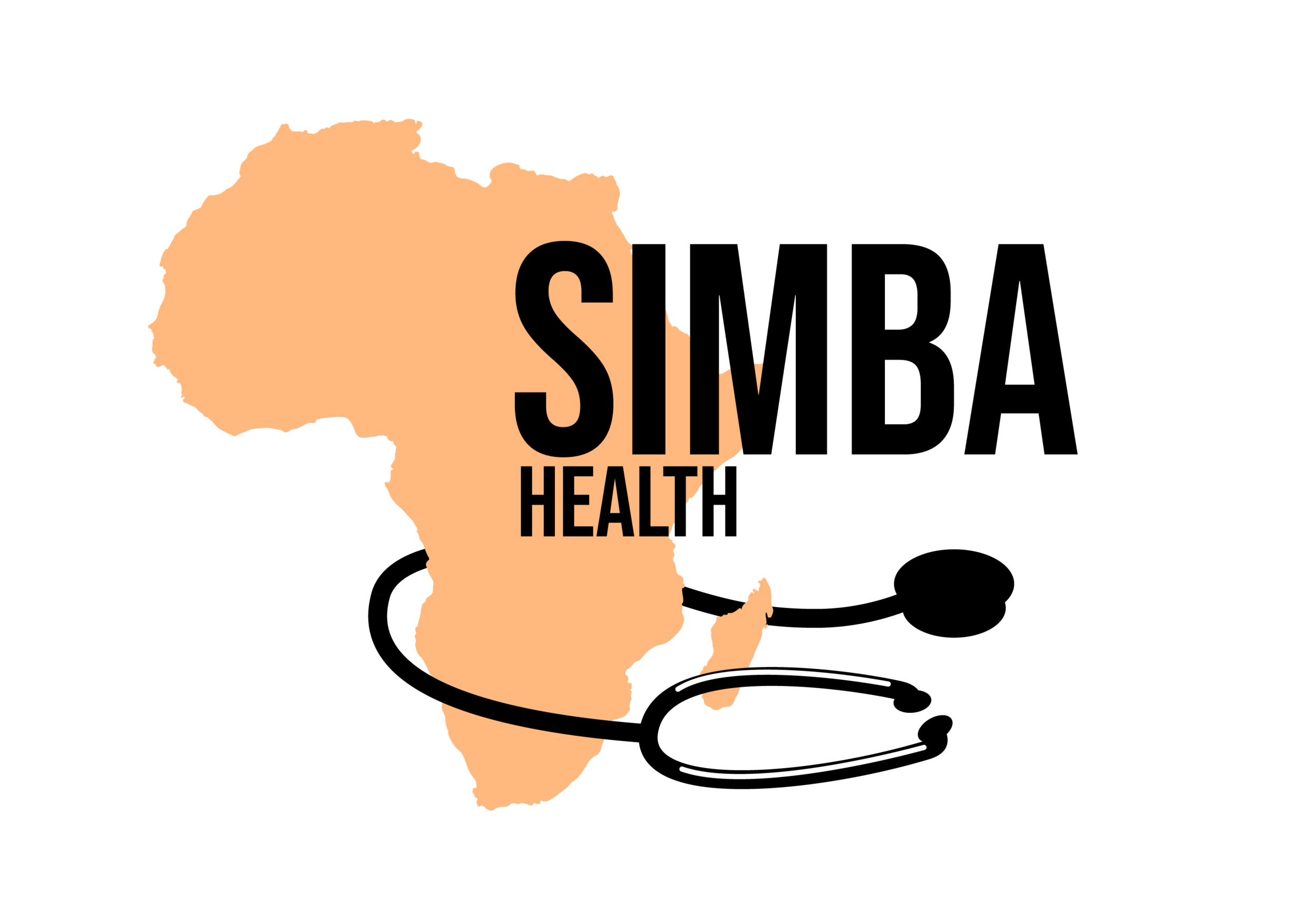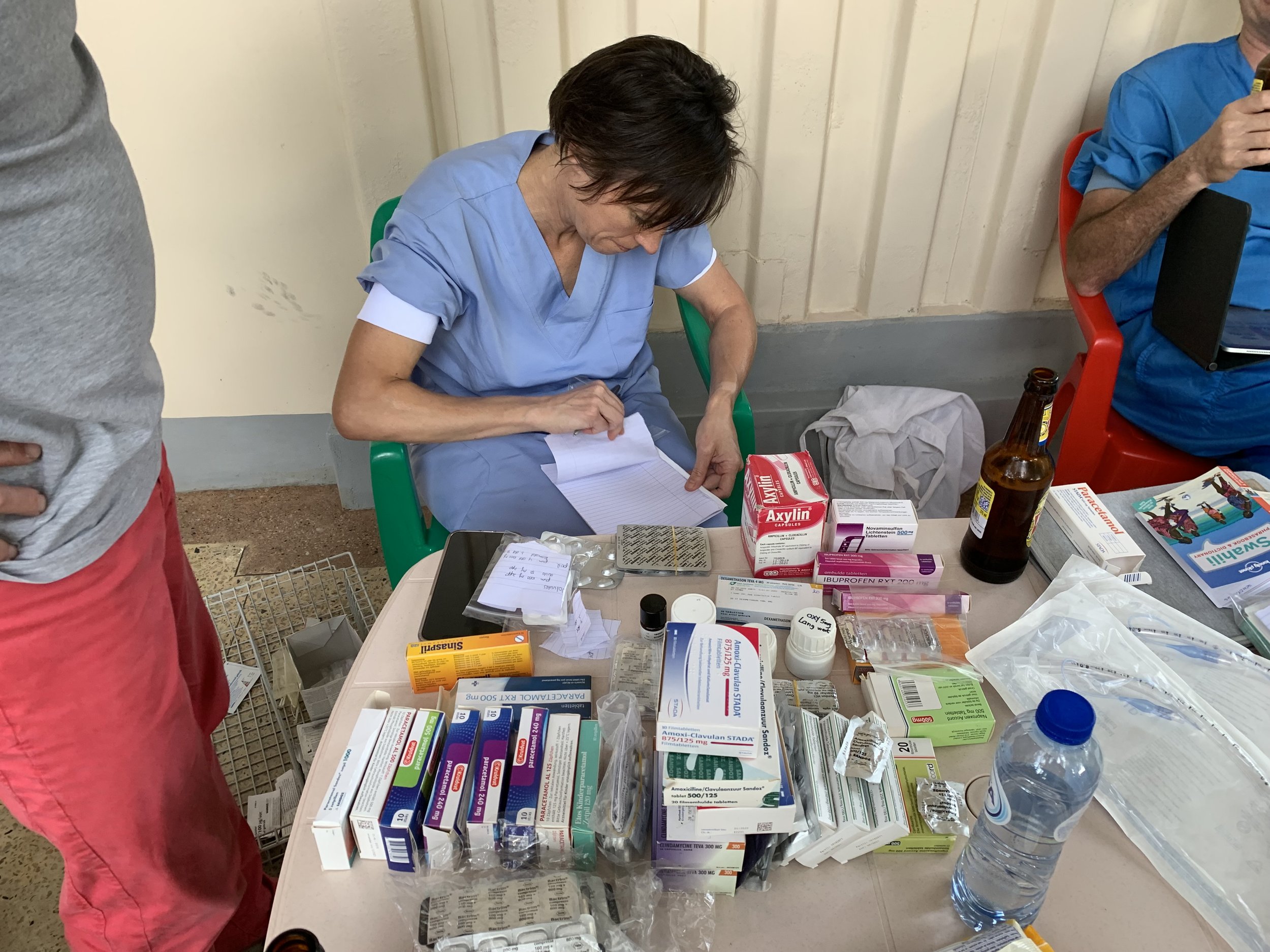Outreach Oktober 2021
Blood, sweat and tears
This month we concluded a successful mission to Sengerema Hospital. After a year and a half of Covid, we were once again able to visit Tanzania with a full medical team from the Netherlands. Of course, this time there was a lot of extra to do about face masks, vaccinations and PCR testing. On the first day at the hospital eighty patients were screened in order to see who could and should be operated on by our two Dutch surgeons Bart and Erik. In de days thereafter a steady trickle of additional patients were added to that list. Jiska kept herself well occupied planning and coordinating this in consultation with the various departments of the hospital.
During our time there several emergencies interrupted Jiska’s careful planning, because of life-threatening complications and road accidents. Michiel and Irma prepared, implemented and monitored the necessary anaesthesia for all regular and emergency operations. Anja made sure all medical supplies and instruments were ready for proper use during the operations, which kept her on her toes. Veerle, daughter of Michiel and Anja, came along for the ride, since she is considering specializing in anaesthesiology, and made herself very useful to the team throughout our stay. All in all, 38 operations were carried out in eight working days and three nights. In light of the ever present blood, sweat and tears, not all were successful, but thankfully most were.
The total demand for medical interventions carried out by the team was however somewhat less than in previous years. Possibly this is the result of Covid, with people being fearful of infection at the hospital, even though the Covid ward had already been closed down three weeks before the arrival of the team. But it could also be a financial hurdle, because patients are in principle asked to make a small contribution towards their stay in the hospital. It is good to remember that, at the end of the dry season, and at a time where Covid has significantly reduced people’s incomes, there isn’t much to spare. On the positive side, Tanzania does have a form of national health insurance that covers a good part of the hospital costs for patients. And it is also good to know that at Sengerema no patient is ever sent away for an inability to pay when there is a life-threatening medical problem.
Give a man a fish, and he can eat for a day. Teach him to fish, and he can feed his family the rest of his life.
In light of this Chinese proverb, we can all understand that to fly in expertise from abroad will not solve Tanzania’s medical problems. In addition to their medical work, Erik and Jiska Staal were actually quite busy meeting with the management team of the Sengerema hospital and various other officials. Trending topic was the way in which they, through Simba Health, could facilitate and support the training of local Tanzanian specialists. The significance and scope of this issue was illustrated by our visit to a neighbouring mission hospital, St. Claire, about two hours from Sengerema. Although this hospital is much closer to big city Mwanza, and much better equipped, there is such a shortage of medical specialists, that it has to hire specialists from the Mwanza hospital, to work a double shift at St. Claire, after their regular work in Mwanza. This also means that, unfortunately, and unlike Sengerema, it cannot offer any significant emergency services due to the lack of medical specialists.
Erik and Jiska plan to move back to Tanzania in the spring of 2022. In the eight months a year they plan to be in Tanzania for the next five years, their work will shift from a focus on in-hospital operations to capacity building of the Tanzanian medical specialist sector in the larger Mwanza region. Rather than only carrying out medical interventions themselves, they will be involved in mobilizing, facilitating and supporting the training of local specialists. Naturally, external specialist teams will still be necessary to cover the many medical needs in the coming years. In fact, the work of these teams will continue to provide much needed medical specialisation. But they can also provide a fruitful training opportunity for local specialists, under expert supervision.
Daniel Schotanus
24 October 2021




